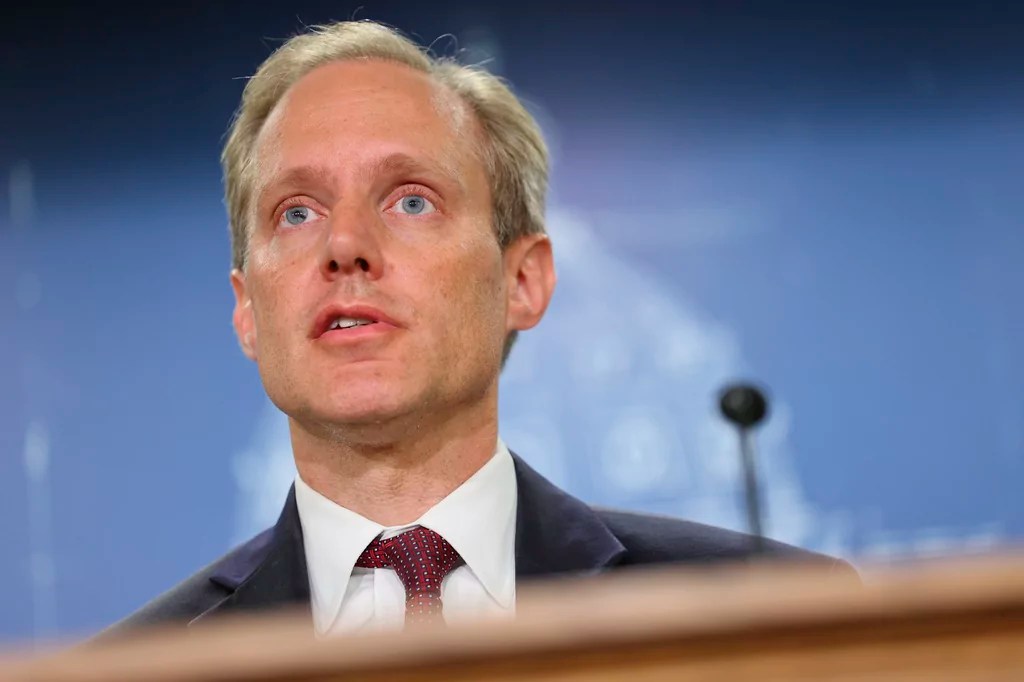Bipartisan Infrastructure Law Funds 2,400 Bridge Projects In First Year
The Bipartisan Infrastructure Law provided for the repair or replacement of more than 2,400 bridge projects across the country as the first anniversary of its enactment approaches.
Passed at the end of last year by a coalition of moderate Republican and Democratic lawmakers, the legislation allocated roughly $40 billion for bridge repairs, including roughly $5.5 billion disbursed this year.
“These bridges can be life lines for communities, connecting families to their loved ones, students to school, workers to their jobs, and providing critical access and evacuation routes in case of an emergency,” according to a statement from the White House, released ahead of President Joe Biden’s speech about infrastructure near Pittsburgh, Pennsylvania.
The commander-in-chief had previously committed to starting repairs on 1,500 bridges, implying that the rollout of the Bipartisan Infrastructure Law is proceeding ahead of schedule. Among other projects, the funding will aid repair and rehabilitation efforts for the I-65 Bridge over the Sepulga River in Alabama, as well as the I-270 Bridge, which connects St. Louis, Missouri, and Madison County, Illinois.
According to data from the American Society of Civil Engineers, as many as 7.5% of the nation’s 617,000 bridges are considered structurally deficient, while 42% are more than 50 years old. The total investment needed to address the national backlog of bridge repairs could be as high as $125 billion.
“The nation needs a systematic program for bridge preservation like that embraced by many states, whereby existing deterioration is prioritized and the focus is on preventive maintenance,” the organization said in a report published last year. “While structurally deficient bridges are not inherently unsafe, they require substantial investment in the form of replacement or significant rehabilitation, and they present higher risk for future closure or weight restrictions.”
A fact sheet from the White House said that the Bipartisan Infrastructure Law created “the single largest investment in repairing and reconstructing our nation’s bridges since the construction of the interstate highway system,” promising to rebuild “the most economically significant bridges in the country as well as thousands of smaller bridges.” A salient criticism of the legislation, which earmarked a total of $1.2 trillion, was the lackluster emphasis on traditional infrastructure compared to climate measures and renewable energy programs.
Despite $110 billion in combined expenditures on roads and bridges “with a focus on climate change mitigation, resilience, equity, and safety for all users,” the bill allocated $66 billion for Amtrak, $65 billion for the expansion of green energy capacity, and $90 billion for public transit, including efforts to “replace thousands of deficient transit vehicles, including buses, with clean, zero emission vehicles.”
State and federal policymakers have since enacted more incentives for electric vehicle ownership. A recent set of guidelines from the California Air Resources Board mandates that all new cars sold in the state must produce zero emissions by 2035, while the governments of Massachusetts, Washington, and Virginia have enacted legislation adopting the California standards.
President Joe Biden recently signed the Inflation Reduction Act, which includes $7,500 tax credits for some new electric vehicles and $4,000 tax credits for used ones. Multiple administration officials, including Treasury Secretary Janet Yellen, have contended that “no country controls the wind and the sun,” implying “countries that can harness those sources of energy will make their economies more resilient and secure.”
" Conservative News Daily does not always share or support the views and opinions expressed here; they are just those of the writer."





Now loading...